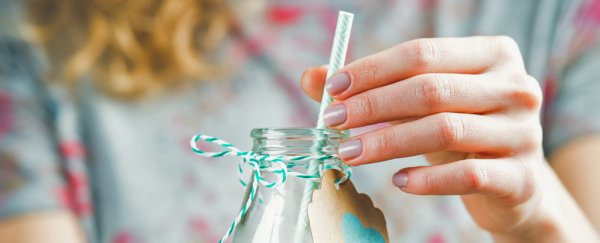In one fell sip, Seattle on Sunday became the first major US city to ban drinking straws, an environmentally friendly move that leaders hope will spark a nationwide conversation about small, everyday changes that people can make to protect the planet.
A decade ago, the city adopted an ordinance requiring that all one-time-use food-service items be compostable or recyclable, according to The Seattle Times.
But straws and other utensils were exempted from that law because there were not many good alternatives. So the straws stayed, along with the environmental problems they cause.
Most plastic straws aren't heavy enough to make it through industrial recycling sorters, according to the Strawless Ocean campaign, and can ruin an otherwise good load of recycling.
Or they end up getting blown out of trash cans and car windows and ultimately wind up in the oceans, where they can hurt wildlife.
Strawless Ocean estimates that 71 percent of seabirds and 30 percent of turtles have some kind of plastic in their stomachs. The organization says ingested plastic can increase the mortality rate of marine life by 50 percent.
Now customers at grocery stores, restaurants, food trucks, even institutional cafeterias have to find another way to get liquid into their mouths. Compostable paper and plastic straws are allowed under the ban.
People who have a medical need to use a straw are exempt.
Failure to comply may result in a US$250 fine, although city leaders told the Times that the initial phase of the law is more about raising awareness.
In September, 150 businesses participated in Strawless in Seattle, an attempt to reduce the use of plastic straws. In that month alone, Strawless Ocean estimates, 2.3 million plastic straws were removed from the city.
"When you get your iced latte, you're going to get a straw. When you go get your mojito, you're probably going to get a straw," Dune Ives, executive director of the Lonely Whale Foundation, which led the campaign, told the Times.
"Once we start observing our daily life, it's really easy to see how quick" the plastic adds up.
UN Goodwill Ambassador Adrian Grenier has lent his celebrity to the #StopSucking campaign.
.@KidSuper designed these limited edition tees to support @LonelyWhale. Wear your support for the #ocean, get yours: https://t.co/YcfagyUEs9 pic.twitter.com/qcXViMzn9N
— Adrian Grenier (@adriangrenier) August 8, 2017
But consumers also have been putting pressure on companies to do away with plastic straws. There is, for example, a petition on Change.org demanding that McDonald's switch to strawless lids.
"Imagine a world where we could stop consuming 500 million straws a day, just in America!" the campaign says. "Imagine a world that is less dependent on plastic. That's change we can start today!"
And even Seattle-based Starbucks is making an effort to change its straw-heavy business model.
The company is developing strawless lids.
2018 © The Washington Post
This article was originally published by The Washington Post.
